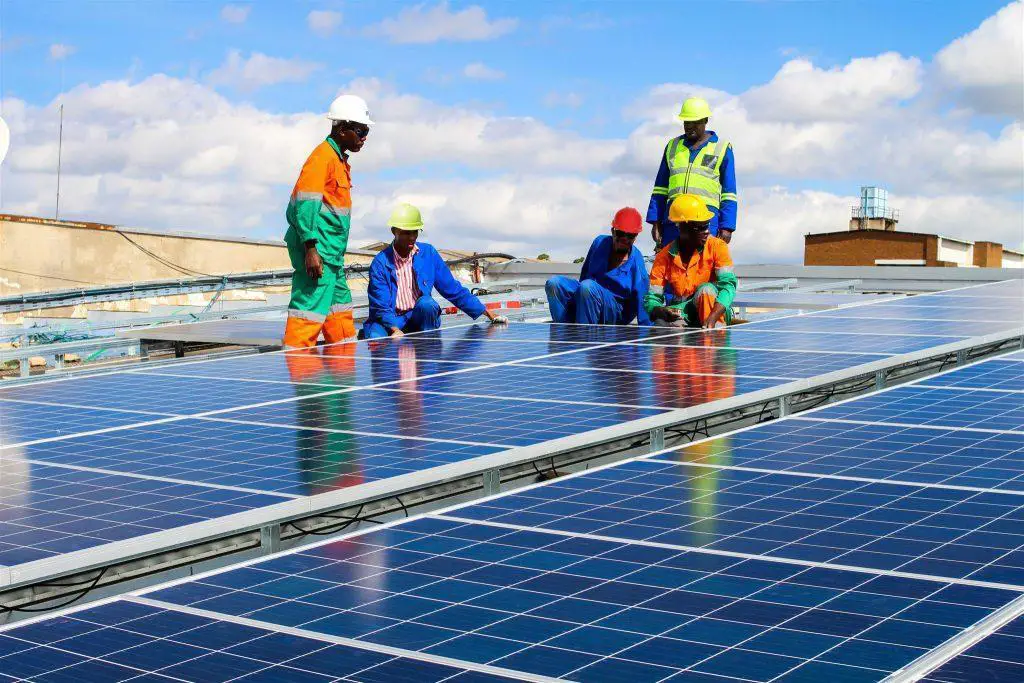- Solar energy, alongside wind power, has become the cheapest way to meet the growing demand for electricity, according to the World Bank.
- World Bank’s Demetrios Papathanasiou says many developing countries have some of the world’s best solar and wind resources.
- He expresses his optimism about the ability of global countries to tap into advances in solar energy and make dramatic gains.
Solar energy is expected to surpass coal as the world’s most available energy source by 2027. The African countries with the most immense global potential are critical drivers of this projection.
The World Bank, in its latest energy report update, says that of the nearly 675 million people who still live without electricity worldwide, more than 80 per cent, or 567 million people, live in sub-Saharan Africa.
It says that 2030 solar mini-grids could bring high-quality, uninterrupted power to 380 million people.
“This is if governments and industry work together to drive costs down and overcome barriers to financing, including technological, political, and regulatory risks, and uncertainty over whether customers can afford to pay,” the lender says.
“The same is true for conventional solar power.”
It says the number points towards a substantial drive in the global figures of solar electrification as solar is expected to surpass coal as the world’s most available source of energy in three years to come.
“Along with wind power, solar has become the cheapest way to meet the growing demand for electricity.”
The scope of solar energy
World Bank reiterates that solar power is a game changer for climate change and energy access.
According to the global energy director at the World Bank, Demetrios Papathanasiou, many developing countries have some of the world’s best solar and wind resources.
Read also: Africa will need pragmatism, not idealism, to achieve a just energy transition
He expresses his optimism about the ability of global countries to tap into advances in solar energy and make dramatic gains.
He, however, brings to attention the need to address the prevailing obstacles towards the green transition, especially in many developing African countries.
“This includes the challenges in obtaining the finance needed to scale up solar energy investments,” Demetrios said.
“The technology exists to bring clean, cheap solar power to millions of people who still live without electricity. The international community must step up its support to help governments prepare transition plans, strengthen their institutions that are the backbone of the power sector, and prepare early projects and mitigate risks that can keep costs out of reach.”
Breaking solar barriers
Despite its promise, the lenders say solar’s journey to the mainstream has been slow and difficult, taking decades to overcome hesitation around adopting new technology.
As a result, many countries have been locked into high-carbon energy, spending up to six times more on subsidizing fossil fuel consumption than their commitments made under the Paris Agreement to tackle climate change, it adds in part.
World Bank, therefore, notes that the right policies and regulations can help lower solar development costs, attract cheaper financing, and encourage private investment.
“Official development assistance must also increase and multilateral development institutions including the World Bank will have to do more.”
Solar’s next frontier
Scaling up solar can only be transformative if the foundations of the power system, such as transmission lines and institutions, are in place to support a clean energy transition, according to the World Bank.
Electricity grids, utilities, and the government institutions that support them will require enormous transformation and investments across many of the world’s developing countries.
It says insufficient investment has flowed into electricity transmission and distribution networks since the financial crisis and the start of the pandemic.
With the accelerating growth of solar comes the need for more energy storage to ensure a constant energy supply.
World Bank cautions that most of the energy storage systems developed to date may not be suited for the distinct conditions of developing countries., calling for substantial countermeasures going forward.
“It is increasingly clear that the global deployment of renewable energy is dependent on scaling up all forms of storage systems and investing in resilient electricity grids. It is the frontier that must be crossed to reach net zero and universal access to clean energy by 2030,” it says.
